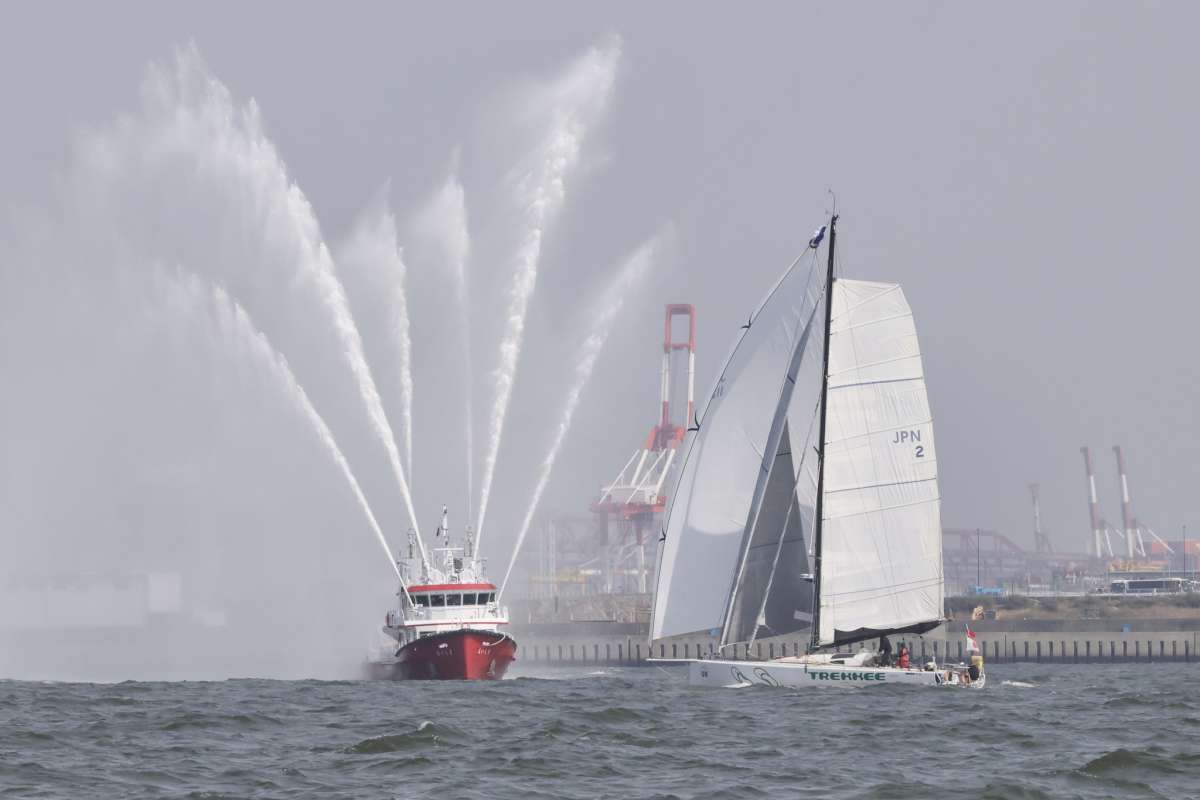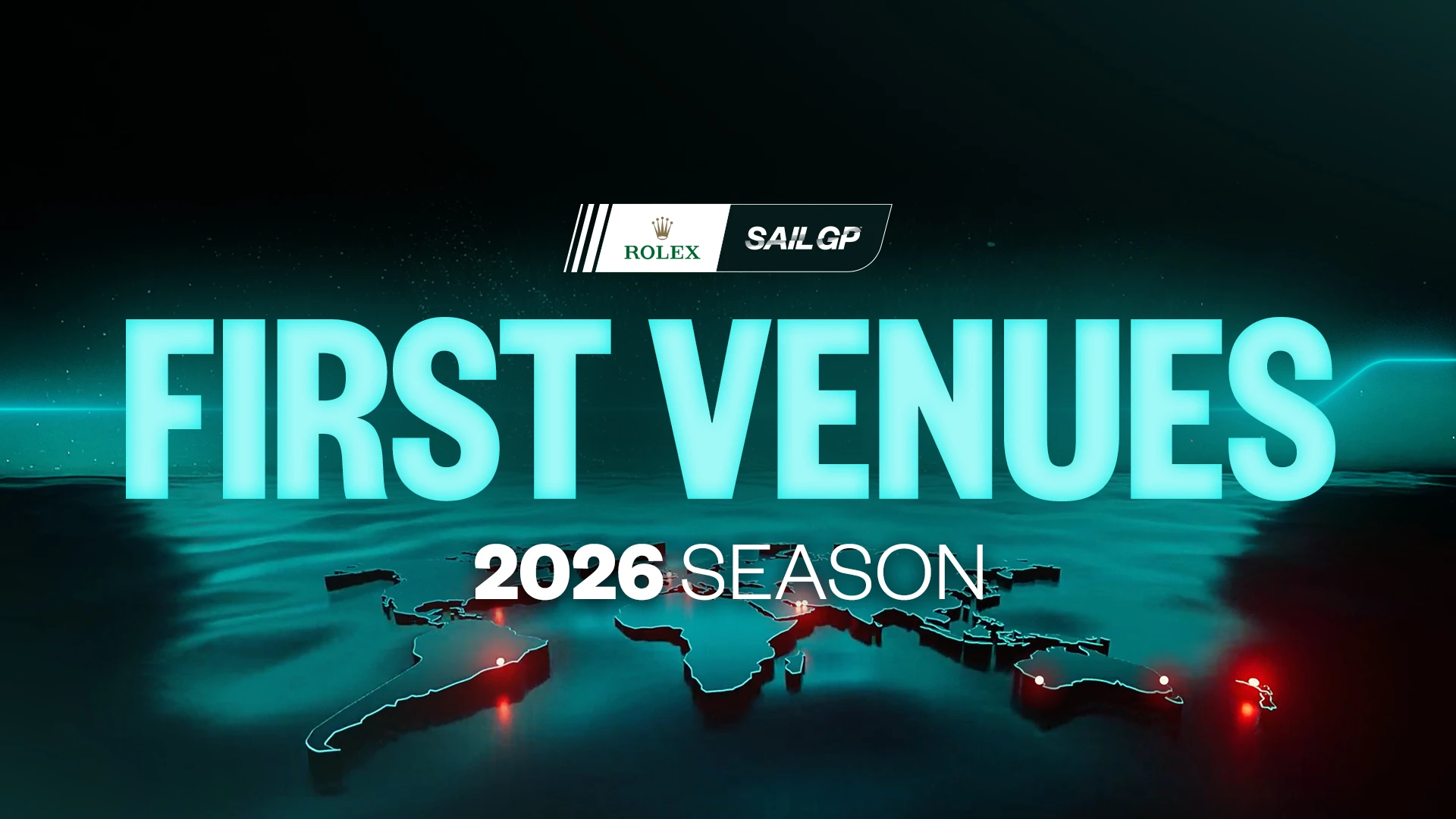Recently three Musto Performance Skiff (MPS) skippers travelled from newly established fleets in Melbourne and Brisbane to contest the 2009 European Championship on Lake Garda in Italy in preparation for the upcoming World MPS Championship at Melbourne's Black Rock Yacht Club in 2011.
Marcus Hamilton and Tim Hill travelled from Melbourne, while class pioneer Jason Beebe made the trek from Brisbane. All three sailors had previously enjoyed success in international classes such as the International Contender and I14 , before moving onto the challenge of the MPS.
THE BOAT
The MPS is a strictly one design single-handed skiff with trapeze, asymmetrical spinnaker, wings and low weight that achieves speeds over twenty knots, making it one of the fastest single-handed sailing boats.
The MPS was designed for the 2000 Olympic Class trials in Quiberon by International Contender sailor Joachim Harpprecht; with the desire to make an updated International Contender with the latest technology. Since then, the class has enjoyed steady growth, with fleets being established in 19 nations, including the UK, Spain, France, Germany, Switzerland, Austria, the USA, New Zealand, Russia and Australia.
To meet the boat handling challenge of MPS, Hamilton and Hill, with just a year in the MPS, trained together through Melbourne's winter. Jason Beebe trained with Colin Turner in Brisbane. All arrived at the European Championship at Lake Garda with the desire to gain the knowledge and experience that only international competition provides, and hopefully snag a few good results.
They were greeted by 76 boats from 18 countries. The Australian contingent was greeted with a mixture of warmth and curiosity from a fleet characterized by helpful enthusiasm.
“Richard Stenhouse (current MPS World Champion and former Finn Olympian) and Ian Renilson(consistent top performer and former International Contender World Champion), in particular, adopted us. They opened their toolboxes and shared their experience on the boats. With only one year's experience, their input was invaluable,” commented Hill.
Having sailed International Contenders at both Riva and Malcesine previously, both Hamilton and Hill knew what to expect when greeted by a starting line biased to the pin, at the pin end – and biased to the boat at the boat end.
“Both ends of the line are actually biased; but you have to get into the shoreline quickly to reach the pressure that swirls down from the cliffs – everybody tries to jam in at the port end,” commented Hamilton.
“The MPS is very difficult on a start line – they're either stalled with the battens inverted – or powering off down the line – judging the start is crucial and this boat makes things very tricky…”
On the Lake Garda course, boats duck in and out through a series of small bays underneath the famous cliffs; judging irregular lines of pressure over the first part of the beat, before settling into a long, left hand persistent shift at the top of the course. At the top, the skiffs set off on a short reach to a turning mark before setting their kites for the downwind leg.
Picking the correct pressure lane was crucial on the runs, with boats gybing quickly to the centre of the course and judging the line down the middle of the lake. Winning or losing 300 meters was not unusual. Generally 5 or 6 gybes were required to take full advantage of the pressure fluctuations, putting a premium on boat handling.
A gate at the bottom of the run presented boats with the option to head upwind via the eastern gate and into the centre of the lake, or the western gate and the shoreline. The final run finished at an anchored boat rounded to port, followed by a very short reach through the finish line.
The series was sailed in light to moderate conditions, typical of late summer in this part of the lake. The warm thermal wind, the Ora, graced entire series. The MPS class championships consist of 12 races (10 to count) usually run over 4 days, with a maximum of 4 races on a given day. Races are usually completed in under an hour.
At the beginning of the series, the thermal was relatively weak, allowing John Reekie from Scotland to card a 1, 7 and 3; grabbing the limelight from Richard Stenhouse to lead on Day 1.
On Day 2 the Ora built in strength to 15 knots. With inclement weather forecast for later in the week, the race committee subjected the fleet to four races in the day. First day leader, John Reekie bombed with a 9, 4, dsq and 16. Championship hopeful Graeme Oliver crashed to a 35th in heat 4, recovering to post a 3,2 and then a 4; whilst his speedy compatriot Andy Peake; the eventual runner up scored a 3, 24, 29 and 9. Richard Stenhouse sailed brilliantly from the front; scoring 1,1,1 and 8 to take the series lead.
Day 3 saw the Ora blowing strongly again, but with rain forecast further up the lake, the race committee was anxious to get the fleet on the water and racing before the breeze faded. Once again, Stenhouse took the fleet by the throat and sailed away with a 1,1 and 3. Russell Clarke(UK) consolidated his position with consistent sailing; picking up a 2,2 and an 8; while Australian newcomer Marcus Hamilton chipped in to win race 10; carrying his kite across the short tight reaching leg to the finish; as the race leader Tom Offer (UK) watched on in dismay.
Day 4 required only two races to complete the series; Stenhouse finished with two more wins; firmly establishing his dominance over the fleet. He dropped a 6th and and 8th, finishing with only 16 points to Andy Peake's 44, Russell Clarke's 53 and Graeme Oliver's 68.
The Australians enjoyed an encouraging regatta of mixed fortunes; all agreeing it was a terrific learning opportunity and lamenting the fact there was no lead up series.
I14 and International Contender Champion, Jason Beebe, began his series consistently scoring just outside the top 10, opening with a 12th, 15th and 13th on Day 1. His series faded through the middle as conditions freshened before rebounding with a 11th in heat 8 and 12th in the final race. He finished an extremely credible 16th and will continue campaigning strongly for Melbourne 2011.
Double World International Contender Champion, Marcus Hamilton had an agonizing series, Marcus found himself on the wrong side of a port and starboard protest in race 3, then struggled to contain himself on the start line, resulting in OCS's in heats 1,4 and 7. With a good series result looking unlikely, Marcus concentrated on completing one heat at a time and his results lifted to consistently score around the top 10, with a 13th, 9th, 6th before winning heat 10. He followed up with a 3rd in heat 11, concluding with a 14th. Marcus eventually finished 24th.
Double Australian International Contender Champion Tim Hill flew under the radar for most of the series. Beginning his scoring around 16, he improved by heat 6 to score a 4th then 5th in heat 8, finishing his series with an 8th and 10th in heats 11 and 12. Tim's consistent sailing was rewarded as the best placed Australian in 12th place overall.
All the Australians struggled with the starts; but by the end of the series had firmly established their presence in the top 10, earning from Paul Manning, the UK agent for the MPS :”…the Australian sailors showed tremendous speed at times and will certainly be the ones to watch at the 2011 World Championships in Melbourne.”
MELBOURNE 2011
Hamilton and Hill plan to campaign strongly towards the World Championships in Melbourne in 2011; with a local fleet expected to reach 15 boats by the end of this season. Etchells and Finn sailor, Mark Bulka, is planning to join the fleet. Local Etchells sailor, Richie Robertson, will join I14 converts Richard Ekberg, Mark Elsworth and Tim Moorhouse with Australian Javelin Champion Brett Williams.
The Brisbane fleet continues to grow with 5 boats expected to take their places with Jason Beebe and Colin Turner. Renowned International Contender Champion Stephen Grimes is expected to join the fleet this season.
The success of the Australians at Lake Garda has firmly established the Melbourne Worlds in the European calendar. Up to 40 skippers are expected to make the trip to Melbourne, joining the local fleet. Charter boats will be available, and a fleet of 60 is expected to take on the Port Phillip chop.
Hill comments: “Sailing on the Italian lakes is a great experience; but I want them to come and see what we enjoy here; strong sea breezes and big waves – classic blue water sailing…”
























